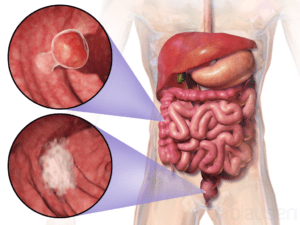While improvements in screening procedures and treatments have improved colorectal cancer (CRC) patient outcomes, CRCs still account for 9-10% of all cancers worldwide. While localized cases of CRC are more easily treated, patients with metastatic CRCs (mCRC’s) have survival rates of 14%.
Current approved mCRC treatments involve chemotherapy and monoclonal antibodies, but these treatments offer moderate improvements in patient prognoses coupled with severe side effects. Other promising treatments such as immune checkpoint inhibitors (ICIs) only work on a small subset of mCRC patients with microsatellite instability (MSI). Most cases of mCRC fall under the microsatellite stable subset (MSS).
Wu et al., attempted to develop a novel mCRC treatment using T cell engaging bispecific antibodies (T-BsAb’s). These polyclonal antibodies bind cytotoxic T cells in the systemic circulation and guide them to cancer associated antigens. A GPA33 specific murine antibody, A33, was extracted and humanized into an IgG1 antibody, huA33. The bispecific antibody huA33-BsAb was created by attaching the C-terminus of the huA33 light chain to the anti-CD3 humanized OKT3 scFv. huA33-BsAb was shown to activate naïve T cells, leading to T-cell dependent cell-mediate cytotoxicity at colorectal cancer cells in vitro. huA33-BsAb also inhibited colorectal cancer xenografts in murine tumour models.
This study produced promising results for using T-BsAbs as a novel treatment for mCRC’s. Furthermore, huA33-BsAb treatment was able to target both MSI and MSS mCRC’s, making it a more widely applicable treatment compared to current approaches.
Journal Article: Wu et al., 2018. Development of a tetravalent anti-GPA33/anti-CD3 bispecific antibody for colorectal cancers. Molecular Cancer Therapeutics.
Article by Maxwell Chan











